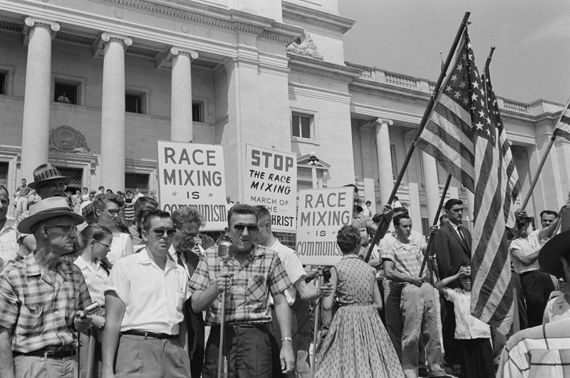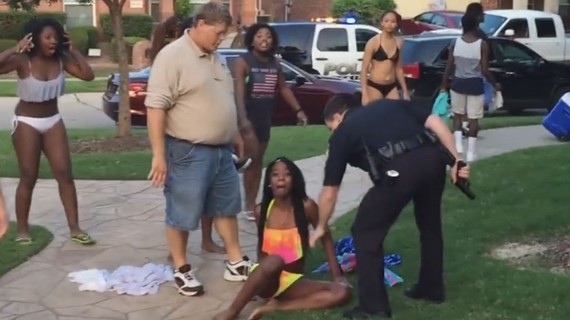On May 3, 1963, Freedom Riders descended on the city of Birmingham, Alabama, demanding equal civil rights for black Americans.
Since the end of the Civil War, or shortly thereafter, black Americans had been denied their equal rights and segregation (and lynchings) were the order of the day.
To combat the Freedom Riders and protestors, Bull Connor, the Commissioner of Public Safety in Birmingham ordered the use of fire hoses and attack dogs on the protestors. This too had been, until now, the order of the day, particularly in the South. And up until then, no one had said much about it.
But by 1963, something had changed -- and that something was a piece of technology: newly developed portable film cameras for television. As a result, the violent actions taken by the Birmingham Police Department were broadcast across the nation -- and to the general disgust of most Americans. It was a turning point in the struggle for civil rights.
Watching the unfolding debacle on television, then President John F. Kennedy realized that he had to get ahead of this before he was left behind by public opinion. He ordered several thousand federal troops to an airbase in Alabama and sped up the drafting of a comprehensive civil rights bill.
Television had brought home, for the first time, the reality of what had been going on in the South for years -- naked violence against black Americans.
In those days, a network like CBS or NBC only had a handful of portable film cameras and mobile film crews. Filming on location like that was both complex and expensive. (In the following years, American TV networks would take their cameras into the field in Vietnam and bring the violence of that war into people's living rooms as well -- giving rise to a massive national anti-war movement.)
For most of human history, violence has generally been done in secret.
Now, all that is changing -- and quickly. Nothing will ever be secret again.
Last week, Corporal Eric Casebolt, a policeman in McKinney, Texas was filmed and broadcast carrying out violent acts against a 15-year-old African American girl and then chasing away, while waving his gun (!), two young black men who tried to come to her assistance. He has since resigned.
This action was not filmed by a network TV crew, nor was it broadcast on any network television news program (at least not at first). Instead, it was shot and "broadcast" by 15-year-old Brandon Brooks, on a smartphone.
The McKinney incident was but the latest in an ever-growing string of caught-on-tape (although we don't use tape anymore) acts of police violence and webcast or broadcast to the world by average people using smartphones.
As there are now an estimated 3 billion smartphones in circulation in the world, and as almost all of them now have (or soon will have) HD video capability, as well as the ability to upload instantly, edit and even live stream -- the world is going to change.
Soon, nothing that takes place in public will ever be private again.
Public knowledge is no bad thing. Neither is public outrage.
Generally, the public is well ahead of elected officials (see Ireland's vote for gay marriage for an example).
And now, we are going to start to have a really informed public. All thanks, not to the 'professional' news organizations, but rather to what we once might have called citizen journalists, but now can simply call, all of us.
Now, and ever moreso in the future, we are all journalists.
Journalism is no longer restricted to an elite few telling the rest of us what is happening.
This is no bad thing.
This is what we call, at long last, a free press.
And elected officials (and network news, if they are to survive) will have a lot catching up to do. And quickly.


